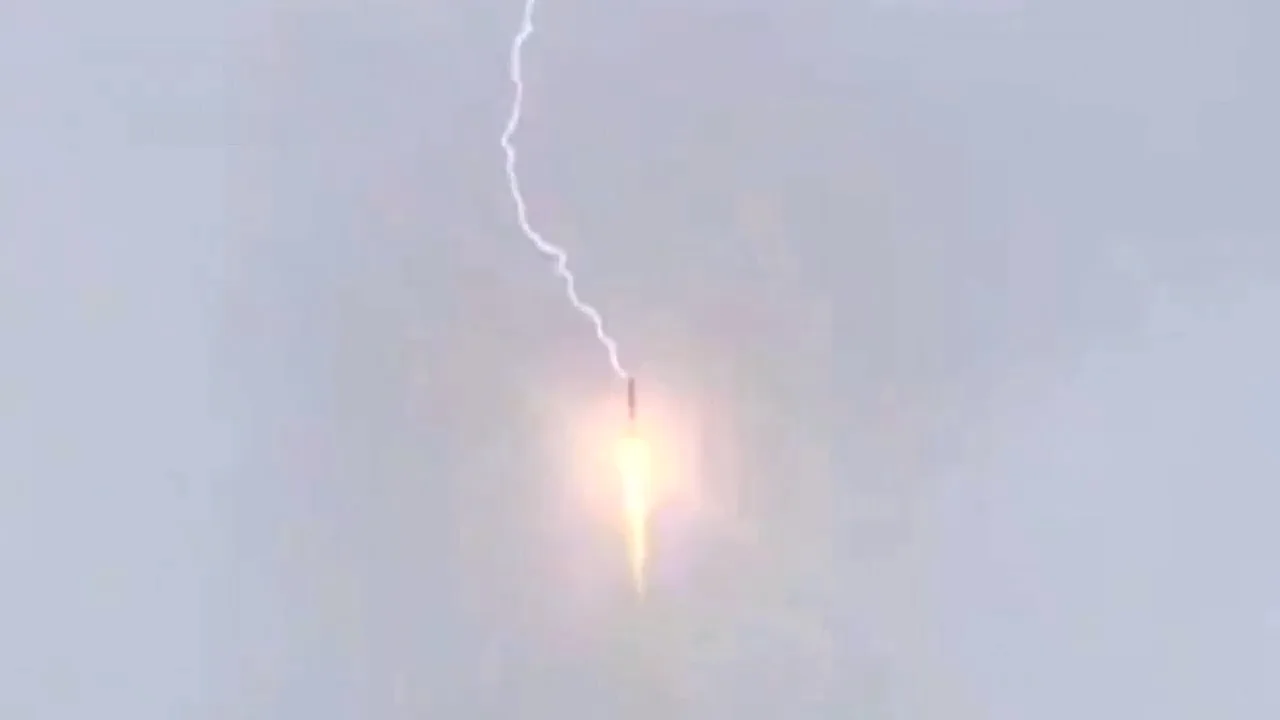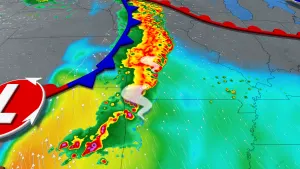
See it: Rocket launch triggers direct lightning hit
A bolt of lightning put the blast in blast off for a Soyuz rocket launch in northern Russia on Monday.
The Soyuz-2.1b rocket, scheduled to lift a navigation satellite into orbit, took a direct hit from the bolt during lift-off early Monday morning, local time, from Russia's Plesetsk Cosmodrome, located about 800 km north of Moscow.
Summer revealed! Visit our Complete Guide to Summer 2019 for an in depth look at the Summer Forecast, tips to plan for it and much more
The hit was caught on video in a clip shared on social media via the Russian Space Agency Roskosmos.
Despite the strike, Roskosmos reported the rocket was uninjured, and the satellite deployed as expected.
BAD TIME FOR A LAUNCH, OR SOMETHING ELSE AT WORK?
While there were certainly cloudy conditions in the area at the time of the launch, as seen in the video, it's not entirely fair to blame the weather for this one. Enter the phenomenon known as "rocket-triggered lightning."
Canadian disaster researcher Mika McKinnon says rockets are essentially big lightning rods. "Any time we shove metal conductors like planes or rockets through ionized* clouds, those conductors are a perfect discharge path," said McKinnon in a Twitter discusion of the incident.
Given the amount of air traffic around the globe at any given time -- an estimated 9,700 planes in the air at any given moment -- it's probably not surprising that airplanes are frequently hit by lightning. In the U.S. alone, the FAA estimates each commercial airliner is hit by lightning once a year, or 1 strike for every 1,000 hours of flight time. Despite that, the last lightning-induced plane crash was back in 1967, thanks to improvements in technology and flight-safety rules.
McKinnon says the same safety principals apply to rockets and that, assuming the rocket is properly insulated against surges, a lightning strike shouldn't be an issue for most rocket launches.
SEE ALSO: A very busy year in space! See 2019's highlights
But she does point out a couple of key differences between rockets and planes -- ones that make rockets more likely to attract lightning strikes than their atmosphere-bound cousins.
"Rockets punch vertically through cloud layers, and rockets trail ionized exhaust connecting them to ground," says McKinnon. "Both of these make lightning strikes more likely."
Indeed, you can see in the video of the strike the way the lightning is conducted down the rocket's exhaust plume -- the ionized trail -- right back down to the launch point.
"A good reason to have lightning rods on launch pads," adds McKinnon.
"The launch was carried out in the normal mode. The weather is not an obstacle and we [the Space Force of Russia’s Aerospace Forces] are all-weather troops," said Plesetsk's chief told Russian media. "This is yet another proof that lightning cannot damage our aerospace weapons."









